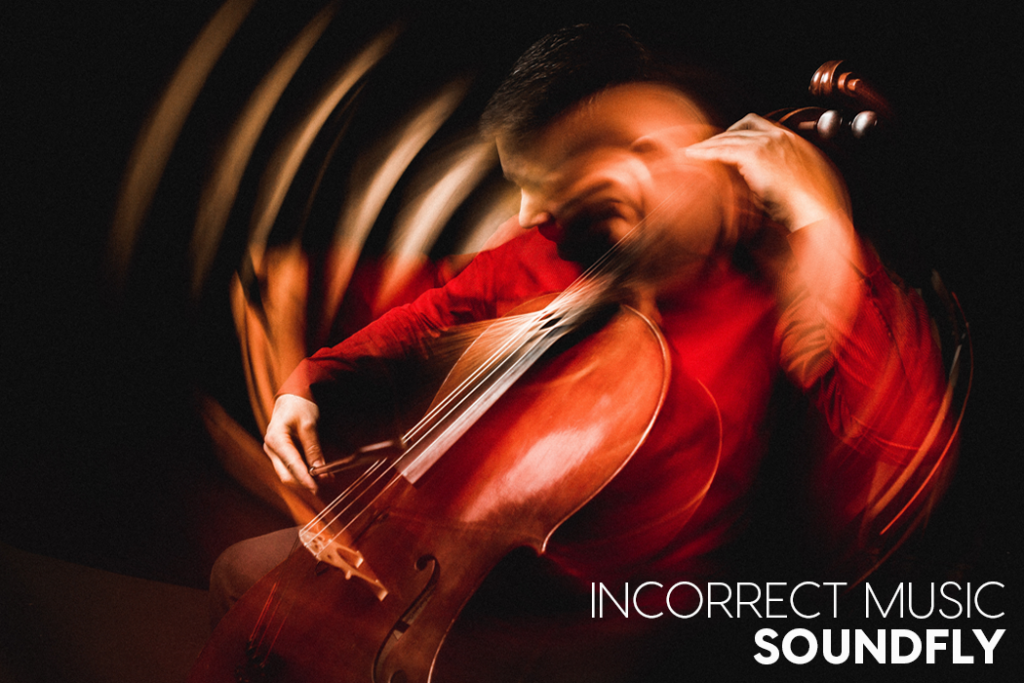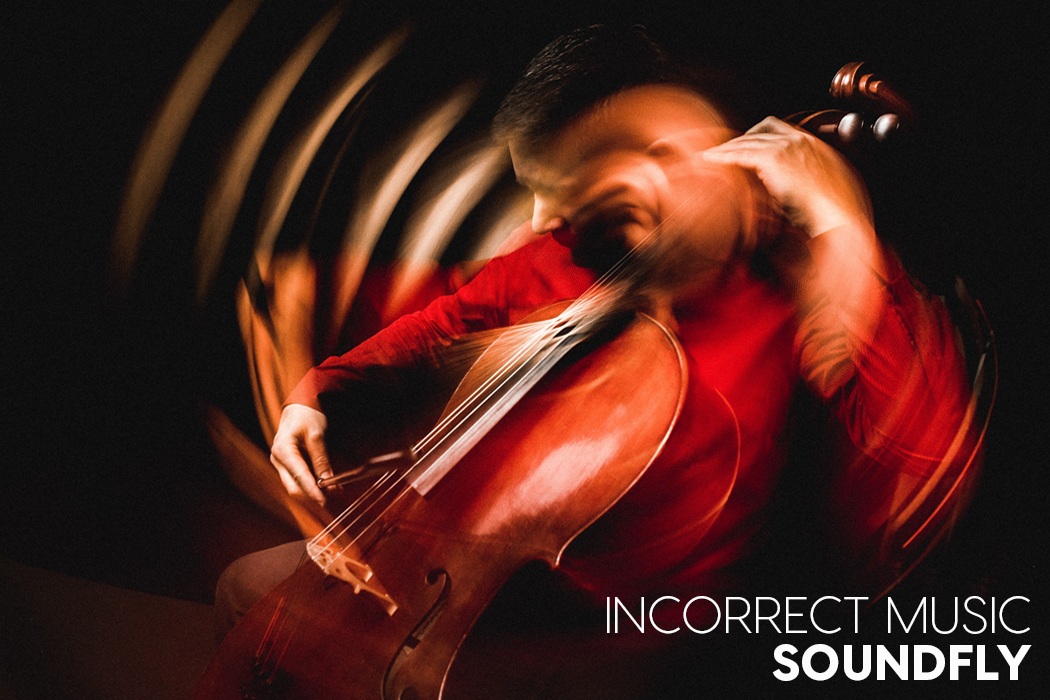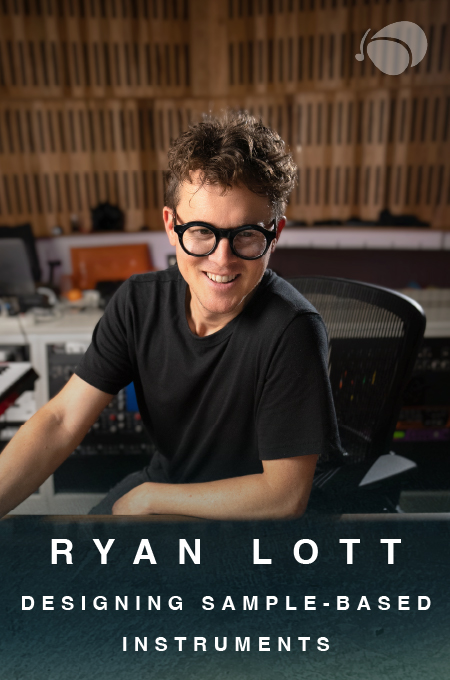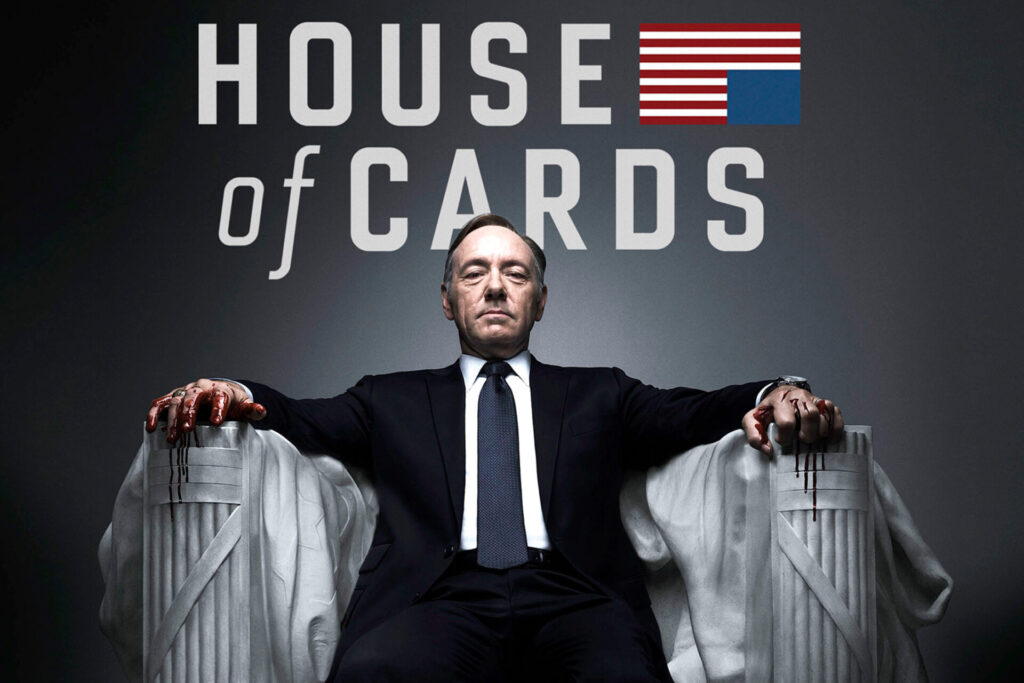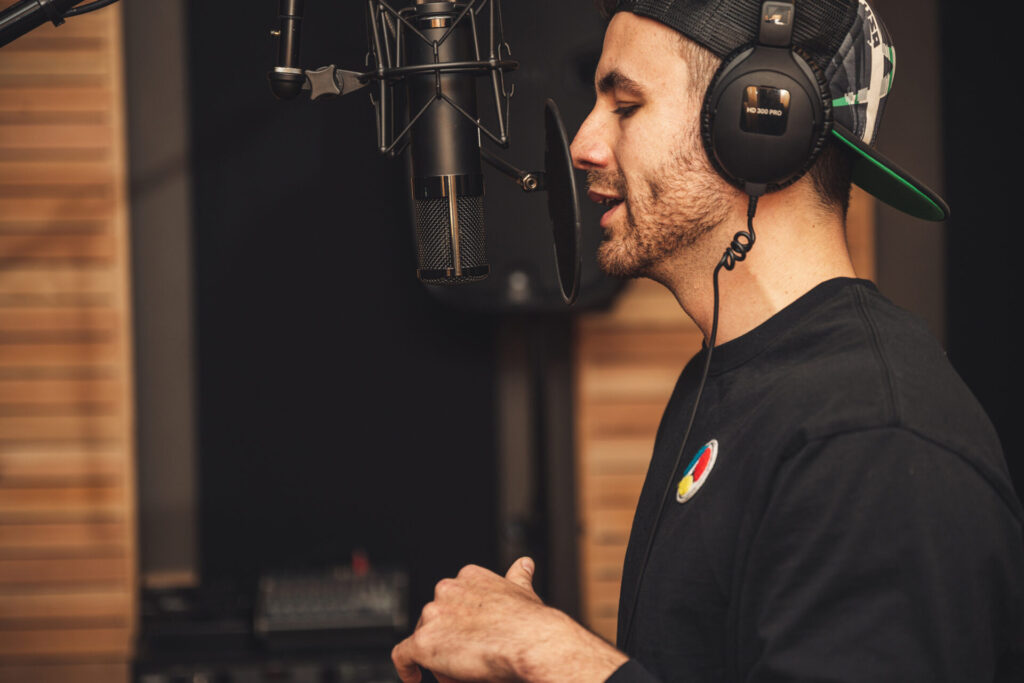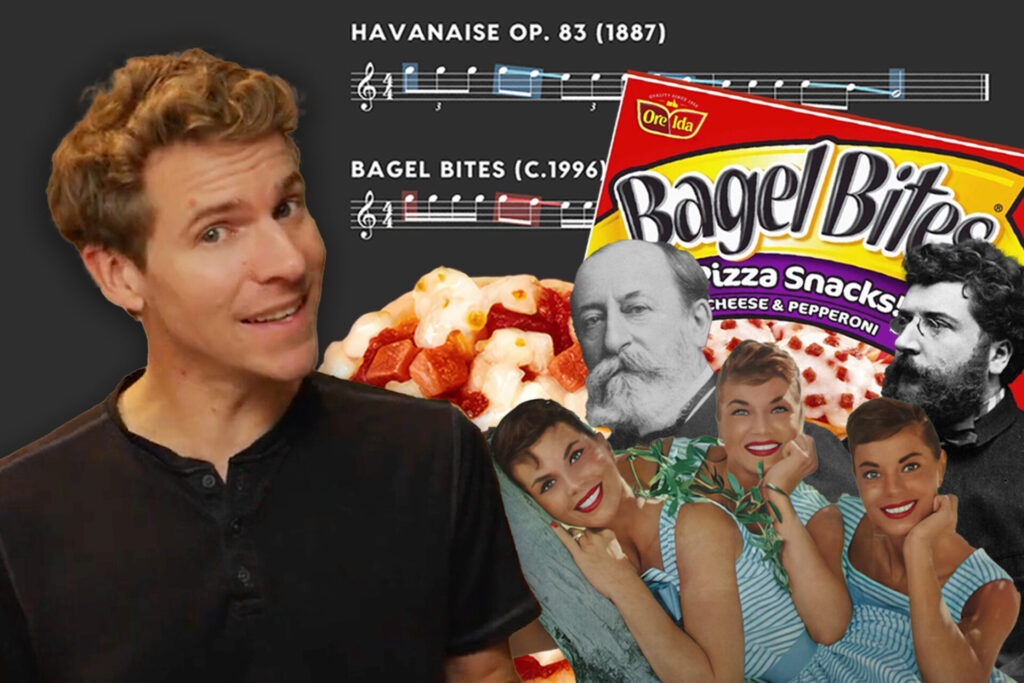Welcome back to Soundfly’s weekly interview series, Incorrect Music, curated by guitarist, singer, and composer Lora-Faye Åshuvud (of the band Arthur Moon). In this series, we present intimate conversations with artists who are striving to push the boundaries of their process and craft.
Nick Photinos’ debut solo album, Petits Artéfacts is a playful, masterfully performed collection of 18 never-before-recorded works by both established and emerging new music composers ranging from David Lang to Bryce Dessner to Angélica Negrón. Photinos, a founding member and co-artistic director of the four-time Grammy Award-winning chamber ensemble Eighth Blackbird, has toured with Björk, recorded with Wilco, and teaches at the beloved Bang on a Can Summer Festival each July.
His explorations on Petits Artéfacts gracefully achieve what he calls his lived goal of “benign subversity” as a musician: a manner of ”introducing people to music they’ve never heard and especially that they think they might not like” while neither descending into alienating pretensions or watering down the complexity of thought. Seamlessly weaving his own artistry on the cello not just with the ideas presented by his composers and collaborators, but with the meta-processes of recording, producing, and arranging in mind as well, Petits Artéfacts is like somebody took all the best intentions from The Lemon of Pink and elevated them. It’s joyful, generous, and precise with a singular clarity of intent.
Nick Photinos’ new album, Petits Artéfacts, is out now via New Amsterdam Records. Photinos is on tour performing both solo and with Eighth Blackbird. Be sure to check him out in a city near you.
– Lora-Faye Åshuvud
Interview by Josh Robins
Many of these pieces sound like they’d be hard to perform live – like “Information,” for example. Do you do that one live? “Cuisine” seems like it’d be tough to pull off live, too. I’m not sure how that effect is generated, but it’s haunting in a very modern-sounding way.
These are both from Florent Ghys’ Petits Artéfacts, and I play the entire piece (these two pieces plus four more) not only live but with video. “Information” is pretty straightforward — I’m playing with a click track against parts I pre-recorded with video of an actual Iranian weather forecaster in the background.
“Cuisine” is a bit tougher and the one that I always have to sacrifice a small farm animal to before every show in the hopes that it all goes right. There’s looping, but on top of that, the video cycles images at the rate of the length of pizzicato notes I play, then loops those (sonically and visually) as I play longer arco lines over it. The live version is different than the recorded one, which was impossible to capture in the studio, so I just sent raw acoustic tracks to Florent, and he worked his magic. There is more interpretation involved in that one, as there’s no meters, just short and long lines.
How much involvement with the composers did you have, and how much liberty?
I know all the composers pretty well but only worked closely in the development process with Pascal [Le Boeuf] and Florent. In the others, I took some liberties, even asking to change the entire key of a piece in one instance, but always with the composer’s blessings. It helps to know all of them, and that they’re all cool.
Do you ever compose for yourself?
I do more arranging, mostly for Eighth Blackbird, but would like to get into composing more. Development is hard.
I’m sure the term avant-garde is used often to describe what you do. Eighth Blackbird could be too, but it’s a term that seems to encapsulate a pretty subjective idea. Anything that’s challenging or off-kilter can be avant-garde; Glenn Branca or John Cage all the way down to people who are just fooling around in their bedrooms with various sounds. What does avant-garde mean to you, if anything, at this point?
I mostly hear avant-garde being used as a catch-all by people (not musicians or composers) describing music that is new for them, that they don’t understand, or is in opposition to what they know. I think it’s lost a lot of its meaning. To me, it means music that’s revolutionary, that’s either rebelling against something or just completely going in a new and usually contradictory direction. But the key is that it’s pushing against something, either consciously or unconsciously. I think there are a lot of composers like that, but it doesn’t really tell you anything about their music. I’d consider John Cage and Glenn Branca avant-garde, but their music doesn’t sound anything alike.
“I’m trying to throw myself into more things that may seem scary at first, and then figure out the path through that.”
Who or what inspires you musically these days?
Listening-wise, starting to dig into Thundercat, literally while writing these responses. But also a lot of the people on this album; Florent in particular. It’s actually the way the whole album started, me being blown away by his album and accompanying videos for Télévision and contacting him about a piece. He makes music and videos that are quirky, wry, and seem simple until you look under the hood and notice the really tight construction.
I’m also inspired by the collaborations I do with other people, both inside Eighth Blackbird and outside. I’m trying to throw myself into more things that may seem scary at first, and then figure out the path through that.
I’m betting you had a few pieces in the running that didn’t make it on this collection. Any you were particularly fond of that you’d like to revisit for next time or in the future?
There were two pieces by Jacob TV that didn’t make it out but which I’ll be releasing in the future and that I’ve already given to some people as a Kickstarter reward. There are a number of other ideas I’ve had floating around, but I don’t want to talk about them unless they become a thing that exists in the world. I’m already thinking about next recording steps after this album, though I want there to be a reason behind doing it, and I’m not there yet. Plus, I’m still enjoying touring this repertoire and getting it out there!
What’s your favorite piece on this album? Why?
Aw, man, that’s like asking which of your children is your favorite. Honestly, there’s so many, and they’re all really great in different ways. Next question…
At Soundfly, we love to use the term “Incorrect Music” to describe the things an artist does that go against people’s assumptions, or even their own instincts, but which yield exciting and unique results. What about your work might you consider to be “incorrect”?
My favorite thing is playing for people who have never heard new music and having their minds blown. I’m a big fan of “benign subversity” — for me, in a good-natured way (and not in a prescriptive, more-knowledgeable, or holier-than-thou way), introducing people to music they’ve never heard and especially that they think they might not like. I try to adopt that attitude about the music I play and the audiences I play for — never to make too many assumptions about them, either.
Trying to find the “in” for them, and for me, in any particular piece. So much of why people think they don’t like new music is that they’re looking for things that might not be there, and I often liken it to being disappointed by looking at a Jackson Pollack and being pissed you can’t see the figure of the woman in there — you’re missing the point! So I might introduce a piece as a landscape painting (like “Panorama” on this album), or talk about a narrative (Little’s “and the sky was still there”).
You’re mixing elements from the composed/classical realm with electronics, pre-recorded stuff, and even instruments that aren’t commonly thought of as instruments. What do you think is “incorrect” about the pieces on your new album? What do you think is or was “incorrect” or unique about these pieces when the composers created them?
I think the composers on this album are drawing inspiration from elements that some still consider “incorrect,” from as benign as Pong (Ghys’ “Game”) and dubstep (Joyce’s “Sit and Dance”), to as deep as relating a friend’s tale of being gay and serving in the army during the era of Don’t Ask Don’t Tell (Little’s “and the sky was still there”). Especially with the Little, we’re largely not encountering or wrestling with these issues in the classical concert hall.
Why not?
Modern-day composition seems to often center on an idea or premise or even algorithm that isn’t always musical in its genesis. Where do you think we’re headed with this?
I don’t think traditional melody or form are going anywhere; they’re just putting on different disguises to blend with the times, or at best steer them, and are slowly being expanded to encompass more and more. And composers of all generations have long used non-musical ideas or premises as inspiration, it’s just that now more of that inspiration is digital. The point is that there’s still a human touch, and I think that’s never going away.
You seem to straddle the worlds of high art and entertainment, not an easy balance. Who do you think is the audience for that? Can it be expanded?
I think there’s an audience of people that like to be entertained and challenged at the same time. For a lot of what I do, with Eighth Blackbird and on my own, I find that audience to not be in the classical music camp, but in other artistic disciplines: art, film, dance, whatever. I’ve found that traditional classical fans too often (though not always, and I think this is changing) want things they’ve heard before, something familiar, but those in other disciplines are often hungrier for something new.
I think there’s a definite new music crowd around what we do that’s distinct from the classical crowd, but it could and is all being expanded, helped by non-traditional ways of programming and presenting concerts.
To me, this music asks listeners to take action — to pay attention to more than just texture and timbre and try to follow a concept. That takes some more patience and refined taste than your average fan of Top 40 music or even the classics. How does this kind of music keep going when it’s not popular when sales aren’t enough to finance it on their own?
Not to be pessimistic, but… it’s already not popular, in any sense of the word other than referential, and sales already don’t finance it. And that’s okay. Look, I think there’s always ways to improve the situation, make it more viable and, most importantly, get it in front of the most ears and eyes. But I think there’s always been a counter-stream in any artistic discipline, and I think that’s healthy and helps move the genre along. I don’t think that counter-stream needs to be always as commercially viable as pop to be meaningful or even financially successful.
Eighth Blackbird’s a great example of this — for over 20 years we’ve grown a successful small business that supports 10 people (the ensemble plus staff) by playing music that is, frankly, largely unpopular, a niche of a niche. And we’ve done that by being savvy, by being a non-profit and convincing audiences, patrons, grantmakers, and others that this is music that is worth hearing and seeing.
So it is possible — it’s not easy, but it’s possible.
Looking to advance your skills and open up more opportunities in music? Explore Soundfly’s growing array of Mainstage courses that feature personal support and mentorship from experienced professionals in the field, such as Faders Up: Modern Mixing Techniques, Beat Making in Ableton Live, Orchestration for Strings, and Unlocking the Emotional Power of Chords.
Sign up for our On The Fly newsletter to receive exclusive discounts on current and forthcoming courses!
